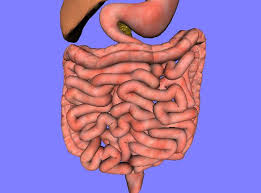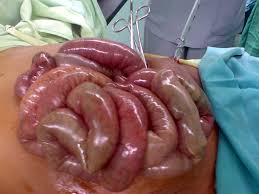CALL TODAY 646-846-1136 | EMAIL
Small Intestine Surgery – What to Expect
 The small intestine is actually a very long and essential organ for daily function. Measuring around 20 ft in full-grown adults, the small intestine responsible for the majority of digestion. However, there are times that part of the small intestine must be removed. In these cases, a small intestine resection, or surgery, can be completed. But how much of a small intestine can really be removed? How essential is the small intestine? What does small intestine surgery entail? And what is recovery like for small intestine surgery?
The small intestine is actually a very long and essential organ for daily function. Measuring around 20 ft in full-grown adults, the small intestine responsible for the majority of digestion. However, there are times that part of the small intestine must be removed. In these cases, a small intestine resection, or surgery, can be completed. But how much of a small intestine can really be removed? How essential is the small intestine? What does small intestine surgery entail? And what is recovery like for small intestine surgery?
What is the Small Intestine?

The small intestine is an essential organ in the process of digestion. When food enters the body, the digestive process begins as you chew your food. This breaks the food down from large chunks into smaller, more manageable chunks. Saliva is also involved, chemically breaking down the different parts of the food. Next, the food travels down the throat, through the esophagus, and to the stomach.
In the stomach, more aggressive enzymes continue to break down the food. Muscular contractions are also responsible for preparing the food for further digestion. The small intestine then receives the food from the stomach. Here, even more enzymes-those created by the pancreas and the liver- break down the food even more. small intestines where the majority of nutrient absorption is completed in the digestive tract. Finally, The food travels to the large intestine, or the colon. Once in the colon, leftover waste that could not be used in the digestive process is excreted. As we can see, the small intestine is essential for the proper breakdown of food and digestion.
Why Would you Need Small Intestine Surgery?
There are a few different reasons that small intestine surgery might be deemed necessary.one of the most common causes for small intestine surgery is a blockage within the organ. As food travels through the small intestines, it may block the passage of other foods through the intestines. This can cause major problems, including infection, disease, constipation, and even potentially death. In cases where there is a blockage within the intestines, surgery is one of the most effective techniques to remediate that.
Because the small intestine is so long, it is possible to remove only a small section of it. During the process of digestion within the small intestine, vitamins and nutrients are absorbed through the lining of the intestinal wall. Therefore, a top priority for surgeons is that of leaving as much intestinal wall intact as possible. In other cases, a section of the small intestine may become diseased or cancerous. Small intestines surgery may be completed in order to protect the rest of the small intestine. If this disease were to spread, the entire small intestine could be compromised.
What to Expect from Small Intestine Surgery Recovery
The small intestine is essential for our daily life. any changes that we make to the small intestine will have an immediate impact on our daily routine. Obviously, your diet will have to change. Just prior to and shortly after the surgery, you will not be able to eat or drink anything. A nasogastric tube movie placed to give you the nutrients you need. This is typically removed within the first week of recovery. Once you are at home, activity restrictions will help protect the incision site and small intestine. Any activity that causes stress to the abdominal region, such as heavy lifting, is to be avoided.
Do you need small intestine surgery? Contact the best surgeons in NYC and schedule an appointment today.
———
References:
https://medlineplus.gov/ency/article/002943.htm
https://www.cancer.org/cancer/small-intestine-cancer/treating/surgery.html
https://www.oncolink.org/cancers/gastrointestinal/small-bowel-cancers/small-bowel-resection


